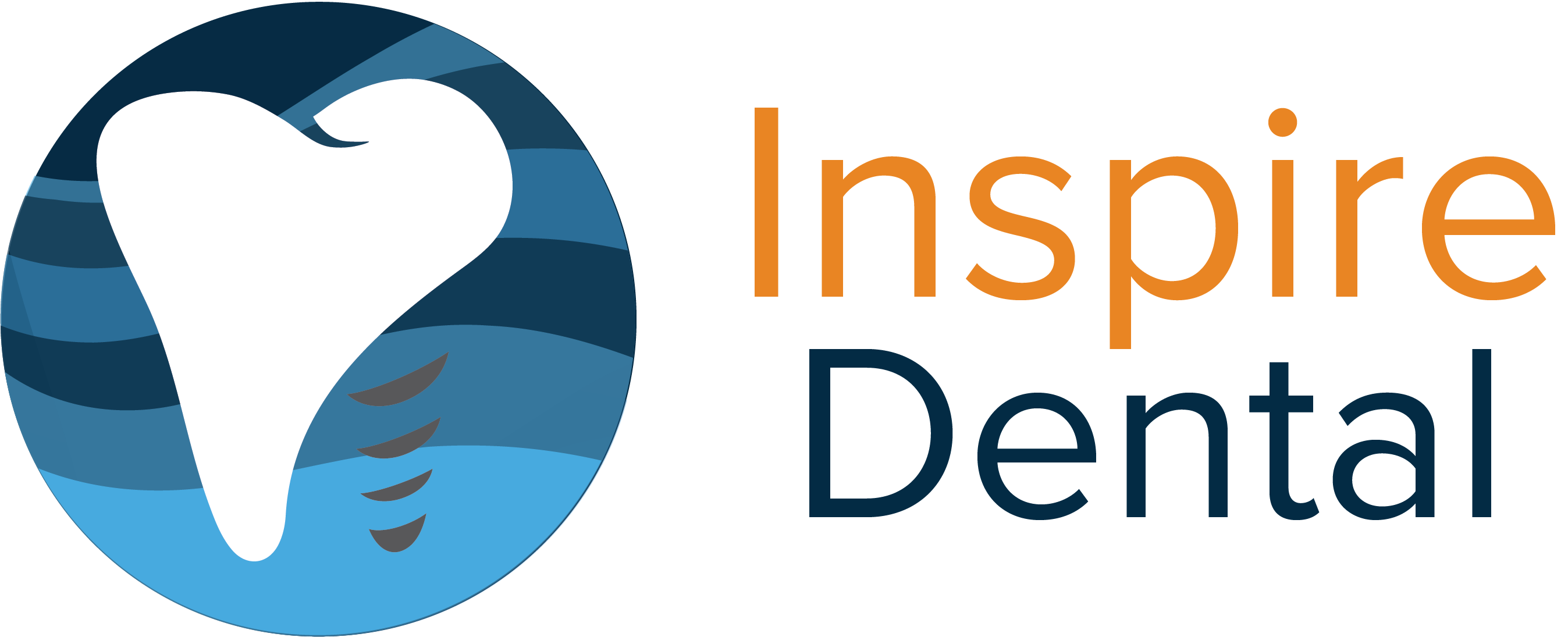Sleep apnea is a serious condition. It causes you to stop breathing while you sleep. This leads to poor sleep and can make you feel tired during the day. Many people do not know that dental treatments can help with sleep apnea. In this article, you will learn about sleep apnea dental treatments, how they work, and what to expect.
Key Takeaways
- Sleep apnea is a condition that affects your breathing during sleep.
- Dental treatments can help manage sleep apnea symptoms.
- Oral appliances are common devices used for treatment.
- Working with your dentist is important to find the right solution for you.
- Treatment can improve sleep quality and overall health.
For more information on how to enhance your overall dental health, consider exploring the importance of regular check-ups and personalized dental care options.
What are Sleep Apnea Dental Treatments?
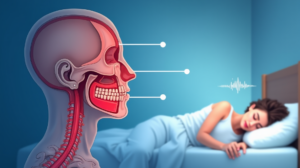
Sleep apnea is a sleep disorder. It happens when your breathing is interrupted while you sleep. This can happen many times a night. You may not even know it. There are three main types of sleep apnea:
- Obstructive Sleep Apnea (OSA): The most common type. It occurs when the throat muscles relax too much during sleep.
- Central Sleep Apnea: The brain does not send proper signals to the muscles that control breathing.
- Complex Sleep Apnea Syndrome: A mix of obstructive and central sleep apneas.
Sleep apnea can lead to other health problems. These include heart disease, high blood pressure, and diabetes. It is important to seek help if you think you have this condition.
Comparison of Sleep Apnea Types
| Type of Sleep Apnea | Cause | Symptoms |
|---|---|---|
| Obstructive Sleep Apnea (OSA) | Throat muscles collapse during sleep | Loud snoring, gasping for air |
| Central Sleep Apnea | Brain fails to signal breathing muscles | Sudden awakenings, shortness of breath |
| Complex Sleep Apnea Syndrome | Combination of obstructive and central apnea | Mixed symptoms of both types |
How Do Dental Treatments Help?
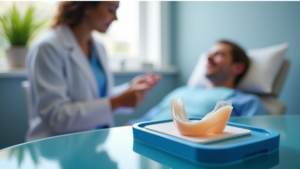
Dental treatments focus on keeping your airway open during sleep. They can be a good option for people with obstructive sleep apnea. Dentists can make special devices called oral appliances. These appliances help by positioning your jaw and tongue to keep your airway open.
Types of Dental Treatments for Sleep Apnea
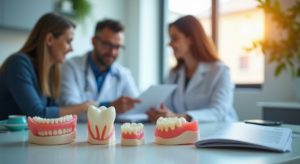
There are several dental treatments available for sleep apnea. Below are the most common types:
Oral Appliances
Oral appliances are custom-fitted mouthpieces. They are designed to keep your airway open. You wear them while you sleep. These appliances are often more comfortable than CPAP machines, which some people find hard to use.
Mandibular Advancement Devices (MAD)
MADs are a special type of oral appliance. They move the lower jaw forward. This action helps open the airway. Many people find relief from their sleep apnea symptoms with these devices.
Tongue Retaining Devices (TRD)
TRDs hold the tongue in place while you sleep. This prevents the tongue from falling back into the throat, which can block airflow. Some people may find these devices helpful, but they might take time to get used to.
Benefits of Dental Treatments
Dental treatments have many benefits. Here are some key points:
- Comfortable: Many people find oral appliances easier to wear than CPAP machines.
- Portable: You can easily take them when you travel.
- Silent: Unlike CPAP machines, oral appliances do not make noise.
- Custom Fit: Your dentist will make sure the appliance fits well, which can improve comfort and effectiveness.
Risks of Dental Treatments
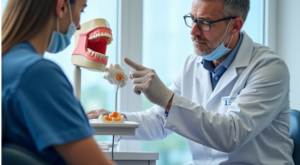
While dental treatments are helpful, there are some risks to consider. These include:
- Discomfort: Some people may feel discomfort or soreness in their jaw or teeth when they first start using an oral appliance.
- Dry Mouth: Wearing an appliance can lead to a dry mouth, especially if you breathe through your mouth at night.
- Bite Changes: Long-term use of oral appliances can change your bite. Your dentist will monitor this and adjust the appliance as needed.
When to See Your Dentist
If you suspect you have sleep apnea, see your dentist. They can evaluate your symptoms and discuss treatment options. You should also see your dentist if:
- You have trouble sleeping.
- You snore loudly.
- You feel tired during the day.
- You wake up with a dry mouth or sore throat.
How to Get Started with Dental Treatments
Getting started with dental treatments for sleep apnea is easy. Follow these steps:
Consultation
First, schedule a consultation with your dentist. They will ask about your health history and symptoms. They may also recommend a sleep study to confirm your diagnosis.
Custom Fitting
If dental treatment is right for you, your dentist will take impressions of your teeth. This helps create a custom oral appliance that fits your mouth perfectly.
Follow-Up
After you receive your appliance, your dentist will have you come back for a follow-up visit. They will check how well the appliance fits and make any necessary adjustments.
Common Dental Treatments for Sleep Apnea
| Treatment Type | Description | Effectiveness |
|---|---|---|
| Oral Appliances | Custom-fitted mouthpieces that keep airway open | High for mild to moderate OSA |
| Mandibular Advancement Devices (MAD) | Moves jaw forward to prevent airway blockage | Effective for moderate OSA |
| Tongue Retaining Devices (TRD) | Holds tongue in place to keep airway clear | Useful for specific cases |
Alternatives to Dental Treatments
While dental treatments are effective, they are not the only option. Here are some alternatives to consider:
CPAP Machines
CPAP (Continuous Positive Airway Pressure) machines are the most common treatment for sleep apnea. They deliver a steady stream of air to keep your airway open. While effective, some people find them uncomfortable.
Surgery
In some cases, surgery may be needed to correct structural problems that cause sleep apnea. Surgery can remove excess tissue in the throat or reposition the jaw. Discuss this option with your healthcare provider if other treatments do not work.
Lifestyle Changes
Making changes to your lifestyle can also help manage sleep apnea. This includes:
- Losing weight if you are overweight.
- Avoiding alcohol and sedatives before bed.
- Sleeping on your side instead of your back.
- Maintaining a regular sleep schedule.
Finding the Right Dentist
Finding a dentist who understands sleep apnea is key. Look for a dentist with experience in treating this condition. They should offer a range of options and work with you to find what works best. Ask your dentist about their experience with oral appliances for sleep apnea.
Real-Life Experiences
Many people have found relief from sleep apnea through dental treatments. Here are some common experiences:
- Improved Sleep: People report sleeping better and feeling more rested during the day.
- Less Snoring: Many notice a decrease in snoring, which can help improve relationships.
- Feeling Healthier: With better sleep, people often feel more energetic and focused.
Before you decide on a treatment path, it may be beneficial to explore various dental services that can help improve your overall oral health.
Conclusion
Sleep apnea is a serious condition, but dental treatments can help. Oral appliances and other dental solutions can improve your sleep and overall health. If you think you have sleep apnea, talk to your dentist. They can guide you through the options and help you get the treatment you need.
By taking the first step and exploring sleep apnea dental treatments, you can work toward better sleep and a healthier life.
Final Thoughts
Sleep apnea dental treatments offer a valuable option for relief. By working with your dentist, you can find a solution that fits your needs. Remember, good sleep is essential for good health. Don’t hesitate to reach out to your dentist today.
Sleep apnea impacts many lives, but with the right help, you can find your way to restful nights and refreshed days.
